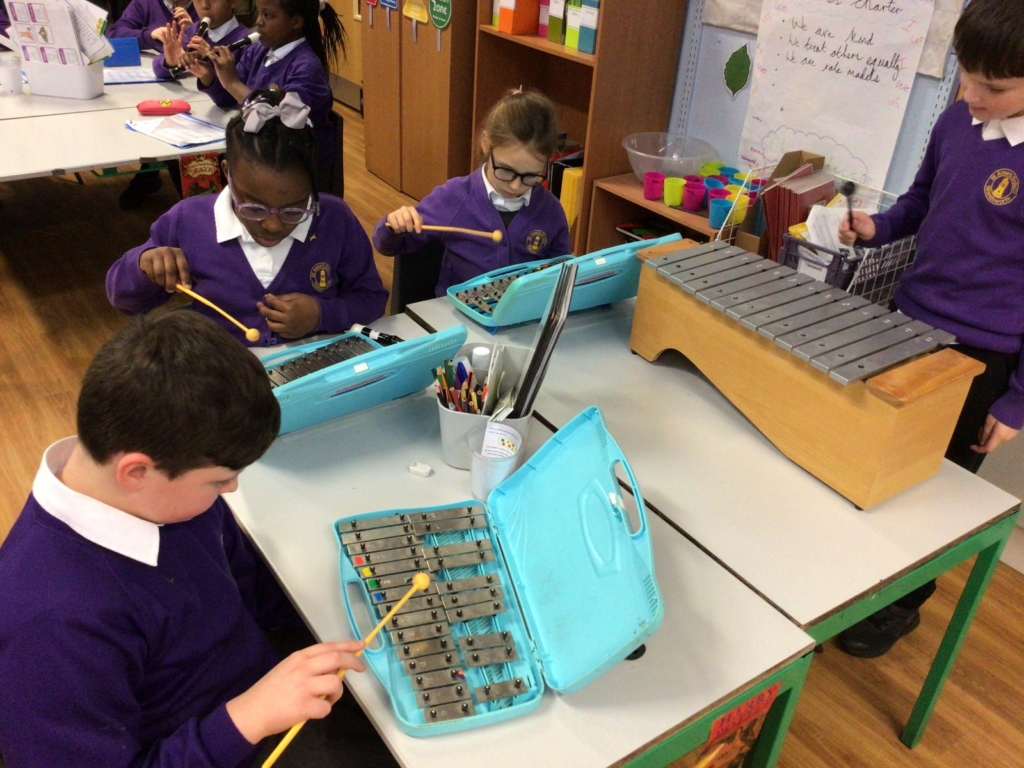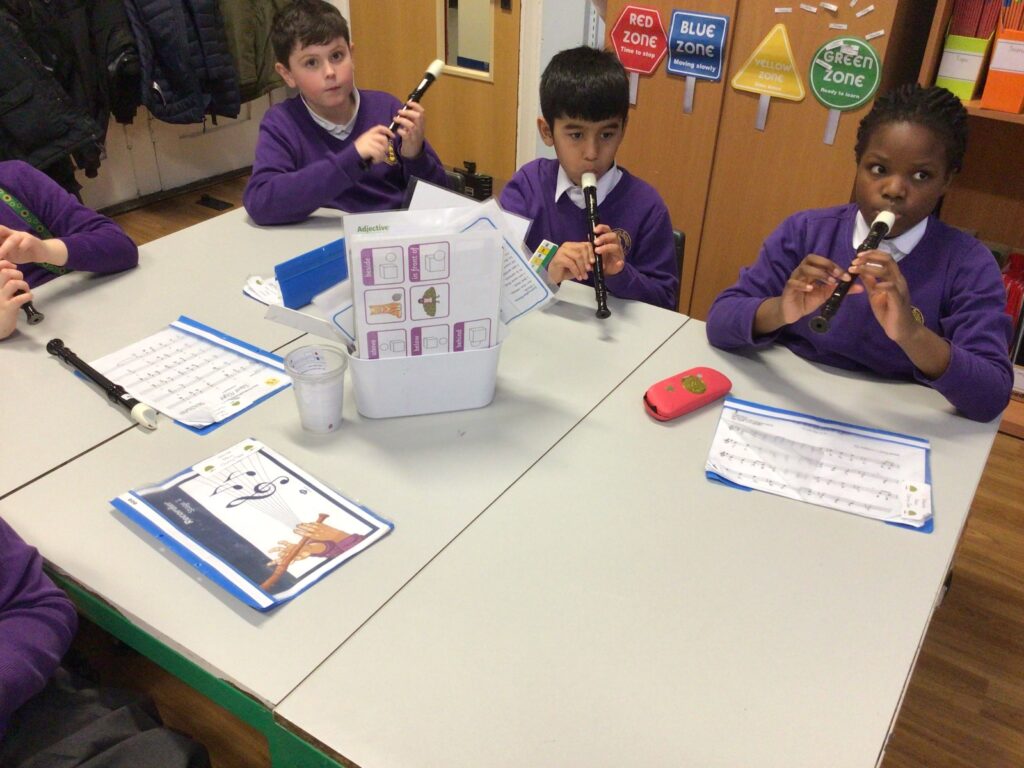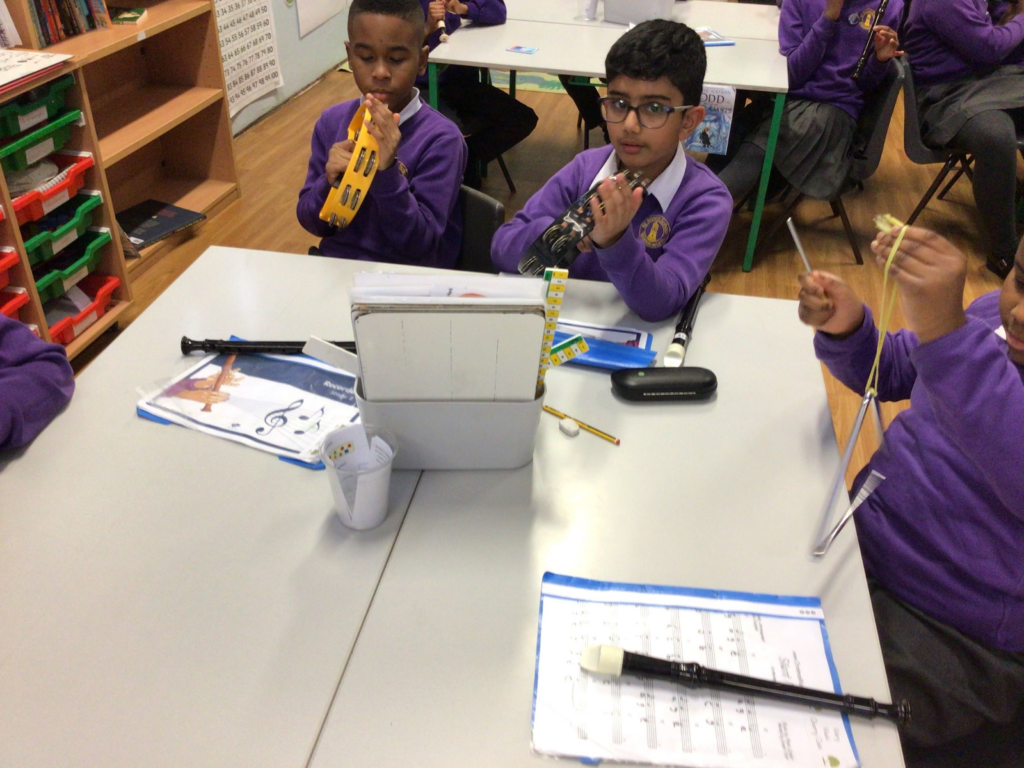

Intent
At St. Anne’s CE Primary School, we aim to provide a broad and balanced music curriculum that encourages the children to develop their creative and expressive abilities. We know Music plays an important part in all our lives, the children spend a minimum of 60 minutes per week enjoying music and have a music singing assembly once a week. Children take part in performances in our termly recitals. The emphasis is on practical experiences through singing, playing, composing and listening. All these activities give pupils the opportunity to work individually, in pairs, in groups and as a class.
Here is a list of the aims of what all children take part in in music lessons:
- Enjoy a wide range of music and make music themselves
- Increase use of their imagination and creativity
- Express themselves and develop emotionally
- Understand alternative forms of communication
- Concentrate and become more self-disciplined
- Develop their ability to listen with intent
- Develop practical skills
- To work collaboratively with other children to make music together
- To gain the experience of expressing themselves both individually and corporately and to gain satisfaction from doing so
- To be and understand what being an audience member is and does
- Develop an awareness of musical traditions and developments in a variety of cultures and Societies

Implementation
The areas of Music that will be taught in each phase or year group. At St. Anne’s CE Primary School, Music is taught in line with the National Curriculum 2014 and using the DfE’s guidance of the Model Music Curriculum. The relevant EYFS, KS1 and KS2 Programmes of Study will be covered by each year group. These are:
The Early Years Foundation Stage
We teach music in reception classes as an integral part of the topic work covered during the year. As the reception class is part of the Early Years Foundation Stage of the National Curriculum, we relate the musical aspects of the children’s work to the objectives set out in the Early Learning Goals (ELGs) which underpin the curriculum planning for children aged three to five. Music contributes to a child’s personal and social development. Counting songs foster a child’s mathematical ability, and songs from different cultures increase a child’s knowledge and understanding of the world. Playing instruments develop their gross motor skills and help with social interaction, taking turns, listening and participating.
KS1
Use their voices expressively and creatively by singing songs and speaking chants and rhymes –
- Play tuned and untuned instruments musically
- Listen with concentration and understanding to a range of high-quality live and recorded music
- Experiment with, create, select and combine sounds using the interrelated dimensions of music
- Sing and play on percussive instruments together as an ensemble
- To hear and recognise instruments and the families they belong to
- To lead and conduct a class, both through a prepared musical piece and a piece of music they are improvising
- To sight read rhythmic notation
KS2
Play and perform in solo and ensemble contexts, using their voices and playing musical instruments
with increasing accuracy, fluency, control and expression –
- Improvise and compose music for a range of purposes using the interrelated dimensions of music
- Listen with attention to detail and recall sounds with increasing aural memory
- Use and understand staff and other musical notations
- Appreciate and understand a wide range of high-quality live and recorded music drawn from
different traditions and from great composers and musicians - Develop an understanding of the history of music
- Play, perform as a wind band within the lessons, these will involve solos and playing as an ensemble, they will learn to follow a conductor and will themselves learn to conduct
- Children will improvise and compose using the interrelated dimensions of music on the instruments they will be playing all year-round showing accuracy, fluency, control and expression
- Children will learn music phrases and understand form with both musical and no prompts while playing their instruments
- Children will be able to notate music
- Children will perform music to a high standard as an ensemble and individually from a range of styles and cultures
- Children will be given a background to the music they are playing and listening to

Impact
Our children feel they are independent musicians who have a love and understanding of music through active involvement in listening, appraising, composing and performing. We enable children’s personal expression, reflection and emotional development through music making, both individually and together; and promote the understanding and appreciation of the richness and diversity of world cultures, styles, times and periods.
Further Information
For more information, please see the subject policy and progression map below.
